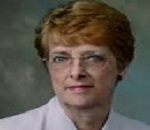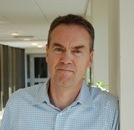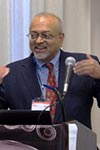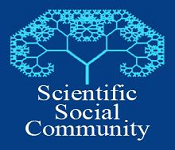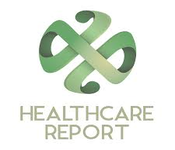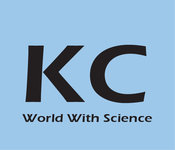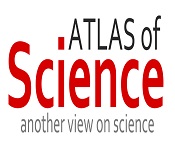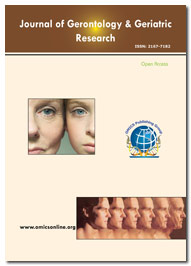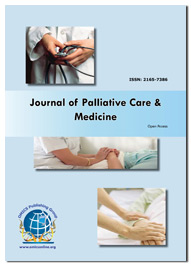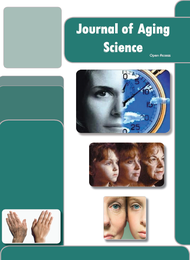Theme: Meeting the clinical challenges of the Ageing Population
Geriatrics 2019
- About Conference
- Welcome Message for Geriatrics 2019
- Tracks/Sessions
- Market Analysis
- Related Conferences
On behalf of Geriatrics Conference Organizing Committee we are very proud to host the Ninth International Conference on Geriatrics Gerontology and Elderly Care scheduled during September 03-04, 2019 at Berlin, Germany covering the theme “Meeting the clinical challenges of the Ageing population”. It is a great pleasure to invite all geriatricians, gerontologists, scientists, public health experts, policy-makers and researchers to share their knowledge and new ideas through a series of Key Notes, Plenary Talks, Workshops, Symposiums, Young Research Forum and Exhibitions.
We are sure Geriatrics 2019 will be a marvellous open door for the global group to express their thoughts and add a typical vision for future research and prompts collaboration among researchers taking an interest.
Berlin is a gorgeous city with many hidden secrets poses one of the world’s most promising destinations to visit and experience the special tourist attractions. Berlin is known for its numerous beach bars along the river Spree. Together with the countless cafés, restaurants and green spaces in all districts, they create an important source of recreation and leisure time.
Why to Attend?
As the world population continues to grow older rapidly along with fertility rates have fallen to very low levels in most world regions it comes as no surprise that global greying will be one of the most pressing issues of the coming century. With members from around the world focused on learning about Elderly Care and its advances; Geriatrics 2019 is a fantastic opportunity to reach the largest assemblage of participants from the Geriatrics and Elderly Care community to conduct presentations, distribute information, and meet with current and potential scientists. Make a splash with new developments in elderly care and receive name recognition at this 2-day event. World-renowned speakers, the most recent techniques, developments, and the newest updates in Geriatrics and Gerontology are hallmarks of this conference.
AIMS of the Conference:
- The conference will provide a unique opportunity to meet the worldwide leaders in the field of Geriatrics and related areas to share innovative ideas on Elderly Care;
- Strengthening and expanding the human network of all involved in the field of Geriatrics and Elderly Care in Europe and globally;
- Providing opportunities for Early Career geriatricians, related specialists and researchers for their professional development;
- Identify knowledge gaps that need to be filled;
- Promote the role of health care specialists in improving quality of life of Elderly
Benefits of Attending:
- Exchange ideas and network with leading geriatricians, gerontologists, healthcare providers, geriatric nurses and researchers from different parts of the globe.
- Discuss quality initiatives that can be applied in the practice
- Discuss ways to collaborate in putting quality initiatives in place throughout the geriatrics and gerontology research
- Participants can gain direct access to a core audience of professionals and decision makers and can increase visibility through branding and networking at the conference
- Learn and discuss key news and challenges with senior level speakers.
- With presentations, panel discussions, and workshops, we cover every topic on Elderly Care from top to bottom, from global macro issues to strategies to tactical issues.
Track 1: Geriatrics and Gerontology
Rising geriatric population is coupled with growing number of chronic diseases and increasing number of long term care services drives the geriatric services market size over the forecast timeframe. As per the United Nations, elderly population is estimated over 800 million in 2017, projected to surpass 2,000 billion by 2050. Moreover, growing oldest old number of people who are susceptible to several medical complications such as neurological, respiratory, orthopaedic and cardiovascular diseases coupled with increase in the advancement of technology such as the development of specialty robots skilled for assisting old people in carrying out day to day operations is anticipated to drive the geriatric services market share. The global geriatric research market was valued at US$ 599.6 billion in 2015 and is expected to expand at a CAGR of 4.2% during the period 2016 – 2024.
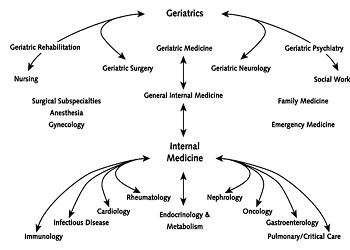
Track 2: Palliative Care and Community Nursing
Palliative care is a methodology that enhances the quality of life of patients and their families confronting the issue related with life-threatening illness, through the counteractive action and help of suffering by methods for early identification and flawless evaluation and treatment of pain and different issues, physical, psychosocial and spiritual. Community nursing incorporates Public Health Nursing (concentrated on wellbeing advancement and ailment avoidance) and Community Health care (concentrated on care at home or in network settings). Nurses in Community Health participate in numerous jobs. Increasing frequency of a life threatening disease such as cancer, cardiovascular and infectious diseases is expect to be the growth driver for the global palliative care market. Different components involved in the growth of the market can be developing number of palliative care centers around the globe, broadening application for homecare, expanding number of qualified doctors for hospice and palliative care, growing ageing socioeconomics and so on. Global Palliative Care market is expected to grow at a CAGR ~8.1 % during the period 2018–2023.
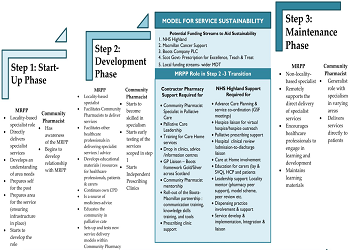
Track 3: Geriatrics and Elderly Care
The global population of elderly of 65 years is growing at an exponential way, driven by better healthcare, nutrition and an abrupt decrease in infectious diseases exposure. From few years it got witnessed in many cases that changing demographics and an increasing life-expectancy of the global population, resulting in the rapid growth of a geriatric population requiring medical support. Likewise, a changing pattern in the absence of family based providing care and in addition changing consumer preferences relating to the kind of medical is also emerging in many countries. These elements will primarily drive revenue growth of the elder care market worldwide. These elements have brought about the adoption of eldercare, because of which the global elder care services market is as of now a billion dollar market, liable to develop consistently at 8.4% CAGR somewhere in the range of 2017 and 2025. The market for products and care for seniors is expected to increase from almost $320 billion in 2013 to $436.6 billion by 2018, speaking to a five-year compound yearly development rate of 6.4%, as indicated by another statistical surveying report by BCC Research. In Europe the institutional care section will remain the most lucrative, with a market attractiveness index of 2.6.
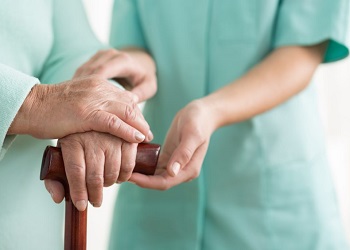
Track 4: Alzheimer's Disease and Dementia
Alzheimer's disease is a neurological cerebrum issue. Alzheimer's is the most widely recognized type of dementia. Dementia is a disorder, generally of a chronic or progressive nature, caused by a brain illness that affects memory, thinking, behaviour and capability to perform regular exercises. The number of individuals living with dementia worldwide is at present evaluated at 47 million and is anticipated to increment to 75 million by 2030. The number of instances of dementia is assessed to relatively triple by 2050. The majority of care is given by family carers. Dementia is currently the seventh driving reason for death. The aggregate number of new cases of dementia every year worldwide is almost 9.9 million, implying 1 new care for every 3 seconds. The expenses to treat this issue is assessed at US$ 818 billion every year at present and anticipated that would increment much more rapidly than the pervasiveness. The worldwide dementia drugs market evaluated to be esteemed at US$ 13,900.0 million in 2017 and is expected to witness a CAGR of 8.4% amid the period 2018– 2026.
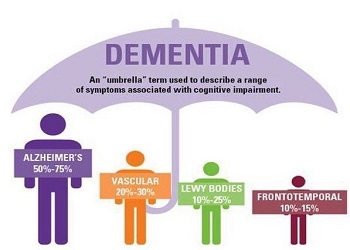
Track 5: Stem Cells and Ageing
Stem cells are special human cells that can form into a wide range of cell types, from muscle cells to brain cells. At times, they likewise can repair harmed tissues. Specialists trust that stem cells based treatments may one day be utilized to treat wrecking illnesses like paralysis and Alzheimer disease. Stem cells are juvenile cells that can form into any cell present in the circulatory system: red platelets, white platelets, platelets and other blood parts. Blood stem cells are not embryonic stem cells. They originate from bone marrow, circling peripheral blood or umbilical cord blood. Individuals whose infections restrain their capacity to create these sorts of cells require a transplant of healthy stem cells from a donor. Novel therapeutics and routine utilization of autologous stem cell transplantation have prompted considerable changes in persistent survival, in spite of the fact that enhancements have been more great among patients more younger than age 65. Europe is the second biggest contributor as far as income for the development of the worldwide stem cells market. Patients from different nations in Europe and in addition the U.S. also, Canada travel to Germany to get medical treatments at reasonable expenses. Likewise, an increasing number of patients are taking the choice of undergoing stem cell procedures in Germany. Rapidly growing population and developing pervasiveness of chronic illnesses in Europe are factors driving the stem cell market in the area.
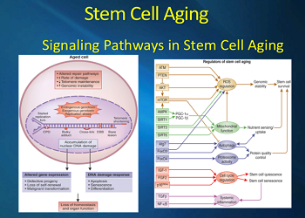
Track 6: mHealth for Ageing
Innovative information and communication technology, such as mobile health (mHealth), can play a significant role in improving health behaviours among an elderly population. According to reports from the World Health Organization (WHO), about 60% of people’s quality of life and health depends on their lifestyle and personal behaviour; they have also associated 53% of the fatality causes with lifestyle and health behaviors; therefore, elderly individuals who adopt health improving behaviors would experience a healthy old age. mHealth tries to provide medical services using the capabilities of mobile technology for reporting health information, monitoring clinical signs and enabling direct supervision and instruction. The mHealth technology can help change and develop health behaviors like increased consumption of fruits and vegetables, stress management, reduced consumption of salt and improved quality of diet and sleep; and improve self-efficacy in elderly individuals with chronic disease such as cognitive disorders & Alzheimer’s, heart disease and susceptibility to metabolic risk & diabetes through text messages, voice messages, voice calls and game-based mobile applications. The global Telehealth Market is anticipated to overreach more than US$ 9.35 Billion by 2022 at a CAGR of 27.5%.
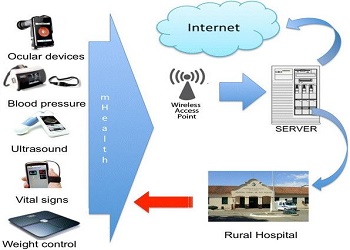
Track 7: Geriatric Oncology
Population aged more than 65 years are more inclined to chronic diseases because of their weak immune system. With a rapidly ageing population moving the spotlight to geriatric oncology, research in this field is also rapidly changing and progressing. Older adults are heterogeneous and regularly barred from clinical trials. New models of care would be invaluable for older adults with cancer, encouraging joint effort, correspondence, and patient centeredness and limiting the fracture that debilitates the current provision of cancer care. The more regrettable result for elderly patients is just halfway disclosed by decreased tolerance to treatment regimens related with the expanding number and seriousness of comorbidities. The worldwide interventional radiology market is foreseen to grow with the CAGR of 6.8% during the period 2018-2023. Increasing predominance of the chronic diseases such as cancer and growing popularity of the minimally invasive technology are estimated to be the major factors that are driving the growth of the market. In addition, innovative advancement in the interventional radiology devices, increasing geriatric population and faster recovery and cost viability are additionally assessed to be the central point that are increasing the development of the market.
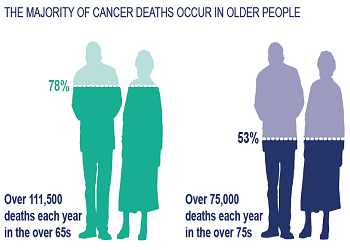
Track 8: Geriatric Nutrition
Changes associated with normal aging increase nutritional risk for older adults. Nutrition has a major role in protecting health and slowing disease progression. Paradigms that promote the nutritional components of healthy aging are needed to increase the age of chronic degenerative disease onset and to maintain healthy, functional lives for as long as possible. At this time, there is a tremendous disconnecting between nutrition and how it is implemented into healthcare. While it is widely agreed upon that micronutrients play a large role in promoting health and preventing disease, meeting the nutritional needs of elderly persons, whether they are or are not living in institutionalized settings, is a great challenge. Micronutrient deficiencies are common in elderly people due to a number of factors such as reduced food intake, lack of variety in the foods they eat, medications that deplete nutrients and create side effects, the price of foods rich in micronutrients, and the deplorable food choices available in the institutional setting. Additionally, the elderly often suffer from anorexia of aging, because the hormones leptin and ghrelin increase as you age, leading to prolonged satiety and suppressed hunger, which can lead to calorie deficit and malnutrition. It is necessary to eat foods that are nutrient dense. People over the age of 60 have much less of the friendly bacteria in their gut, making them more susceptible to gastrointestinal infections and bowel conditions such as irritable bowel syndrome. Supplementing with products that contain healthy bacteria such as lactobacillus acidophilus and bifidobacterium are helpful.

Track 9: Falls, Joints and Bone Health
Falls are the second driving reason for unplanned or unexpected injury deaths worldwide. Every year an expected 646 000 people die from falls universally. Adults older than 65 years of age suffer the high number of fatal falls; 37.3 million falls that are serious enough to require medicinal attention happen every year. While most have great emotional wellness, many older adults are at risk of developing mental disorders, neurological disorders or substance use issues and in addition other health conditions, for example, diabetes, hearing loss, and osteoarthritis. Osteoporosis has turned out to be a standout amongst the most pervasive and expensive health problem. As people get older, they start to lose more bone than they build. The overall osteoporosis drugs market is seeing basic improvement by temperance of developing geriatric population joined with changing lifestyles impinging bone health. Inescapability of osteoporosis is more average with age. Calcium supplementation has been appeared to emphatically influence bone mineral density in postmenopausal women. In an examination in elderly individuals, higher dietary protein admission was connected with a lower rate of age-related bone loss.

Track 10: Genetics of Ageing
Ageing happens because of the pleiotropic impacts of genes that determine different processes. Genes that impact longevity are associated with stress response and nutrient sensing. Telomere shortening prompts cell development arrest and apoptosis. Genes associated with ageing (longevity) have different functions in cells, particularly roles in pressure reaction and control of metabolism. Human genetic disorders like Werner's syndrome and Hutchinson-Gilford Progeria give clues of information about cellular ageing in humans and recommend that ageing associates with elevated mutation rates, changes in gene expression, and arrest of cell division.
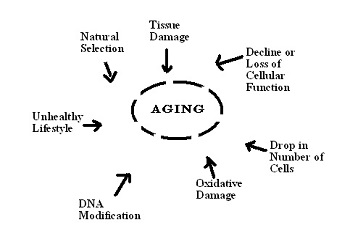
Track 11: Geriatric Services
Geriatric care services enable families to make and implement long term care plans for their loved ones. Geriatric Services are hospital and community-based health care services that analyze, treat and restore fragile older adults with complex medical, functional and psychosocial issues. Elderly patients frequently require an assortment of services to help with medicinal services and different issues. Sometimes, geriatric patients require home care, which may be given by organizations that utilize nurses and other health care professionals. Some geriatric services are outlined particularly to help Alzheimer's disease patients and their families with the one of kind difficulties of that disease. There is an extensive variety of administrations and housing alternatives accessible for older adults in an extensive variety of settings. Many older persons like to stay in their own home for as long as possible and can do this by bringing administrations into their home or by attending an adult day program. Others with expanding needs or a craving to live with others in a more social setting may move to a proceeding with care retirement community, senior housing, assisted living or residential care facility based on their necessity and resources. The worldwide geriatric care services market is expected to flood at a CAGR of 5.90% from 2013 to 2019 to achieve a figure of US$850 bn by the end of 2019. Home care is seen to be the most appealing in the geriatric care services market size, with the income to surpass USD 480 billion by 2024, and will raise at a CAGR of 4.5% from 2016-2024. This upsurge in the geriatric care services industry is because of the expanding institutional care costs.
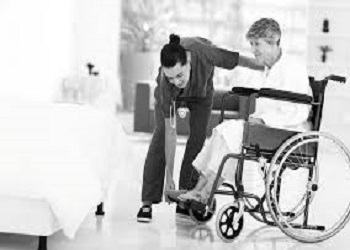
Track 12: Elder Abuse, Law and Rights
The elder abuse happens too frequently yet remains a largely hidden problem. It is anticipated to increase as many countries are experiencing rapidly ageing population. Senior abuse can prompt serious physical injuries and long-term psychological consequences, expanded danger of nursing home placement, use of emergency services, hospitalization and death. It takes numerous structures like Physical abuse, Psychological or psychological abuse, Sexual abuse, financial abuse, Neglect or relinquishment. 16% of older adults are abused in the most recent year however; just 4% of senior abuse is reported. Professional awareness campaigns to enable health care specialists perceive elder abuse; residential care policies to characterize and enhance standards of care are the counteractive action methodologies for elder abuse.
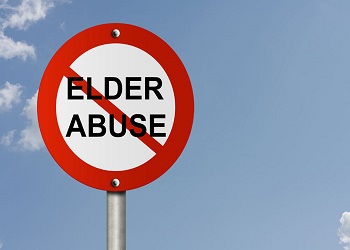
Track 13: Geriatric Endocrinology and Diabetes
Significant advances in wellbeing and social prosperity have prompted linear gains in life expectancy and a going with increment in the burden imposed by age-related morbidities. Complex adjustments in hormonal networks which control homeostasis and survival may underlie this poor adjustment to later life. Both the menopause and subclinical thyroid disease show the trouble in turning around endocrine changes in later life. In old age (≥60– 65 years of age), Diabetes mellitus is becoming an alarming public health issue. Among the elderly population, type 2 diabetes is a growing issue, and a bigger extent of recently analysed diabetics is older. Treating diabetes among the elderly can introduce unique difficulties. Different disabilities related with ageing can add to the unpredictability of entirely self-managing diabetes. Among this age group, analysed diabetes is anticipated to achieve 26.7 million by 2050. The commonness of diabetes among elderly is anticipated to increase to 14% to 33% by 2050. Targeted interventions and extended surveillance and research and better arrangements are expected to address the quickly developing diabetes burden among older adults. In elderly with endocrine disorders, management will be person-centered and objectives of care will focus on change of function and quality of life inside the social context and care setting of the person.
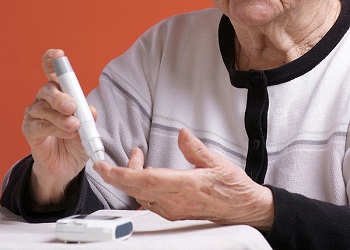
Track 14: Geriatric Rehabilitation
With increased age, patients regularly confront numerous physical and emotional changes that can influence level of function and well-being. Rehabilitation keeps up functional independence in the elderly. Rehabilitation of geriatric patients is basic for the patients' wellbeing and for society. Geriatric rehabilitation additionally have a role in transitional care, where patients are alluded by a hospital or family doctor, when there is a prerequisite to give hospital based short term intensive physical therapy went for the recuperation of musculoskeletal function, especially recovery from joint, ligament, or tendon repair. Finally, geriatric rehabilitation impacts the growing life expectancy around the world. Adherence to an activity program impacts frailty, speed, ability to live independently, and the best part is life expectancy. The geriatric rehabilitation incorporates an extensive variety of medications and therapeutic help for a variety of ailments that the aged face. Geriatric rehabilitation incorporate exercise, adaptive techniques, assistive technologies, physical modalities, and orthotic (braces, splints) and prosthetic devices. Rehabilitation is a basic part of geriatric healthcare, on the grounds that debilitating conditions, which are normal among older adults, significantly influence their quality of life and are manageable to treatment.
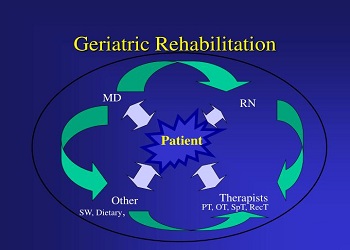
Track 15: Economic and Social Impact of Ageing
Aging of the population influences all parts of the society including health, social security, education, socio-cultural activities and family life. The financial and social outcomes of population ageing are clarified by changes in lifecycle behaviour. Population ageing is generally the aftereffect of demographic momentum, so policy proposals should address the outcomes of these patterns instead of endeavor to change the patterns themselves yet, the developing diversity of circumstances among the elderly and the limit of families to give care over generation’s influence how the strategy implications of an ageing population will play out. The proportion of the nation's population more than 65 as a percentage of aged 20-64 (the elderly dependency proportion) is required to increment from 20.9% in 2010 to 58% in 2050 and 70.7% in 2060 while the offer of the working age populace (15-64) is anticipated to drop from 71.3% in 2010 to 53.4% by 2050. These patterns spell potential economic inconvenience for Ageing.
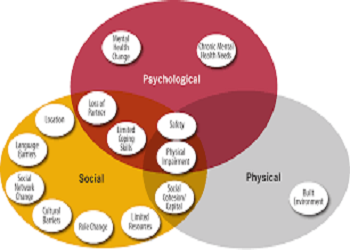
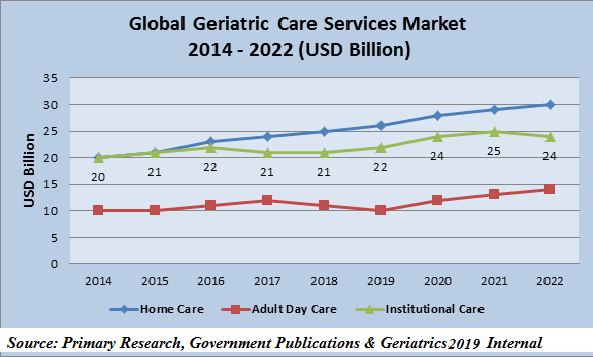
Örebro University
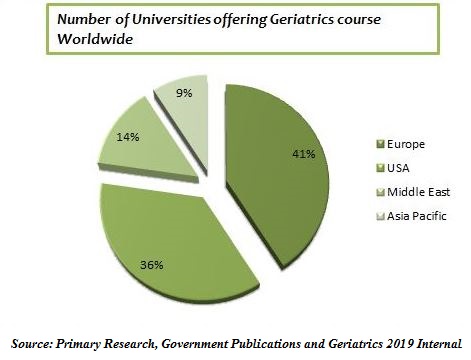
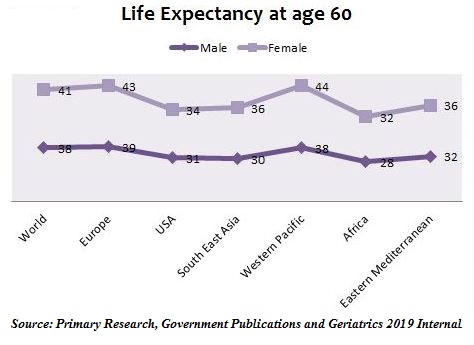
Growing geriatric population intending to live independently is one of the major drivers of the geriatric care services market. The global geriatric care services market is expected to reach to 1,012.02 billion Pounds by 2022, growing at a CAGR of 6.1% over the forecast period. According to data published in 2017, it has been estimated that by the year 2022, approximately 35% of the population would be above 60 years of age. Presence of various long term care services providers coupled with favourable reimbursement policies are few factors expected to boost the growth of the geriatric care services market. Furthermore, increasing oldest old population who are prone to various medical conditions such as Neurological, Orthopaedic, Cardiovascular & Respiratory disorders coupled with increasing technological advancement such as the development of specialty robots capable of assisting elderly in carrying out day to day operations are expected to drive the geriatric care services market growth.
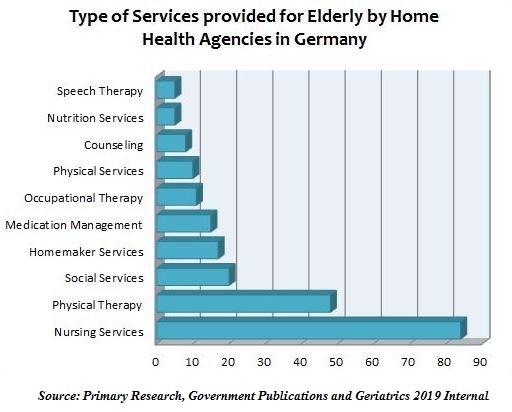
Related Geriatrics Conferences | Aging Conferences | Gerontology Conferences | Nursing Conferences:
International Conference on Ageing and Geriatric Medicine 2019, 4-5 April 2019, London, UK; 5th Global Experts Meeting on Parkinson’s, Huntington’s & Movement Disorders, 8-9 May 2019, Tokyo, Japan, 5th World Parkinson Congress, 2-7 June 2019, Kyoto, Japan; 48th European Brain Behaviour Society Meeting , 21-24 September 2019, Prague, Czech Republic; 6th International Tropical Medicine and Infectious Diseases Conferences, January 28-29, 2019, Barcelona, Spain; 4th International General Practice and Primary Care Conferences, April 15-16, 2019, Berlin, Germany; 28th European Diabetes Congress, June 10-11, 2019, Edinburgh, Scotland; 14th World Congress on Healthcare & Technologies, July 22-23, 2019, London, UK; 7th International Telemedicine and Medical Informatics Conferences, August 12-13, 2019, Rome, Italy.
Related Geriatrics Conferences | Elderly Care Conferences | Dementia Conferences | Aging Conferences:
The Asian Conference on Aging and Gerontology, May 20-22, 2019, Tokyo, Japan; American Society Aging Conferences, April 15-18, 2019, Los Angeles, USA; International Association European Region Congress on Gerontology and Geriatrics, May 23-25, 2019, Gothenburg, Sweden; Australian and New Zealand Society for Geriatric Medicine Annual Meeting, May 13-15, 2019, Adelaide, Australia; 2019 Alzheimer’s Research Conferences, March 19-20, 2019, Harrogate, UK; 6th International Tropical Medicine and Infectious Diseases Conferences, January 28-29, 2019, Barcelona, Spain; 4th International General Practice and Primary Care Conferences, April 15-16, 2019, Berlin, Germany; 28th European Diabetes Congress, June 10-11, 2019, Edinburgh, Scotland; 14th World Congress on Healthcare & Technologies, July 22-23, 2019, London, UK; 7th International Telemedicine and Medical Informatics Conferences, August 12-13, 2019, Rome, Italy.
Related Geriatrics Conferences | Gerontology Conferences | Aging Conferences | Geriatric Nursing conferences:
5th Global Experts Meeting on Parkinson’s, Huntington’s & Movement Disorders, 8-9 May 2019, Tokyo, Japan, 5th World Parkinson Congress, 2-7 June 2019, Kyoto, Japan; 48th European Brain Behaviour Society Meeting, 21-24 September 2019, Prague, Czech Republic; International Conference on Ageing Research and Geriatric Medicine 2019, 4-5 April 2019, London, UK; 6th International Tropical Medicine and Infectious Diseases Conferences, January 28-29, 2019, Barcelona, Spain; 4th International General Practice and Primary Care Conferences, April 15-16, 2019, Berlin, Germany; 28th European Diabetes Congress, June 10-11, 2019, Edinburgh, Scotland; 14th World Congress on Healthcare & Technologies, July 22-23, 2019, London, UK; 7th International Telemedicine and Medical Informatics Conferences, August 12-13, 2019, Rome, Italy.
Related European Geriatrics Conferences | Aging Conferences | Community Nursing Conferences | Gerontology Conferences:
Australian and New Zealand Society for Geriatric Medicine Annual Meeting, May 13-15, 2019, Adelaide, Australia; 2019 Alzheimer’s Research Conferences, March 19-20, 2019, Harrogate, UK; The Asian Conference on Aging and Gerontology, May 20-22, 2019, Tokyo, Japan; American Society Aging Conferences, April 15-18, 2019, Los Angeles, USA; International Association European Region Congress on Gerontology and Geriatrics, May 23-25, 2019, Gothenburg, Sweden; 6th International Tropical Medicine and Infectious Diseases Conferences, January 28-29, 2019, Barcelona, Spain; 4th International General Practice and Primary Care Conferences, April 15-16, 2019, Berlin, Germany; 28th European Diabetes Congress, June 10-11, 2019, Edinburgh, Scotland; 14th World Congress on Healthcare & Technologies, July 22-23, 2019, London, UK; 7th International Telemedicine and Medical Informatics Conferences, August 12-13, 2019, Rome, Italy.
Related Geriatric psychiatry Conferences | Gerontology Conferences | Aging Conferences | Stem Cell Conferences:
5th World Parkinson Congress, 2-7 June 2019, Kyoto, Japan; 48th European Brain Behaviour Society Meeting, 21-24 September 2019, Prague, Czech Republic; International Conference on Ageing Research and Geriatric Medicine 2019, 4-5 April 2019, London, UK; 5th Global Experts Meeting on Parkinson’s, Huntington’s & Movement Disorders, 8-9 May 2019, Tokyo, Japan, 6th International Tropical Medicine and Infectious Diseases Conferences, January 28-29, 2019, Barcelona, Spain; 4th International General Practice and Primary Care Conferences, April 15-16, 2019, Berlin, Germany; 28th European Diabetes Congress, June 10-11, 2019, Edinburgh, Scotland; 14th World Congress on Healthcare & Technologies, July 22-23, 2019, London, UK; 7th International Telemedicine and Medical Informatics Conferences, August 12-13, 2019, Rome, Italy.
Related Palliative Care Conferences | Aging Conferences | Geriatric Nutrition Conferences | Gerontology Conferences:
The Asian Conference on Aging and Gerontology, May 20-22, 2019, Tokyo, Japan; American Society Aging Conferences, April 15-18, 2019, Los Angeles, USA; International Association European Region Congress on Gerontology and Geriatrics, May 23-25, 2019, Gothenburg, Sweden; Australian and New Zealand Society for Geriatric Medicine Annual Meeting, May 13-15, 2019, Adelaide, Australia; 2019 Alzheimer’s Research Conferences, March 19-20, 2019, Harrogate, UK; 6th International Tropical Medicine and Infectious Diseases Conferences, January 28-29, 2019, Barcelona, Spain; 4th International General Practice and Primary Care Conferences, April 15-16, 2019, Berlin, Germany; 28th European Diabetes Congress, June 10-11, 2019, Edinburgh, Scotland; 14th World Congress on Healthcare & Technologies, July 22-23, 2019, London, UK; 7th International Telemedicine and Medical Informatics Conferences, August 12-13, 2019, Rome, Italy.
Related Geriatrics Conferences | Gerontology Conferences 2019 | Aging Conferences | Geriatric Oncology Conferences:
International Conference on Ageing Research and Geriatric Medicine 2019, 4-5 April 2019, London, UK; 5th Global Experts Meeting on Parkinson’s, Huntington’s & Movement Disorders, 8-9 May 2019, Tokyo, Japan, 5th World Parkinson Congress, 2-7 June 2019, Kyoto, Japan; 48th European Brain Behaviour Society Meeting , 21-24 September 2019, Prague, Czech Republic; 6th International Tropical Medicine and Infectious Diseases Conferences, January 28-29, 2019, Barcelona, Spain; 4th International General Practice and Primary Care Conferences, April 15-16, 2019, Berlin, Germany; 28th European Diabetes Congress, June 10-11, 2019, Edinburgh, Scotland; 14th World Congress on Healthcare & Technologies, July 22-23, 2019, London, UK; 7th International Telemedicine and Medical Informatics Conferences, August 12-13, 2019, Rome, Italy.
Related Geriatrics Conferences | Dementia Conferences | Geriatric Endocrinology Conferences | Geriatric Rehabilitation Conferences:
The Asian Conference on Aging and Gerontology, May 20-22, 2019, Tokyo, Japan; American Society Aging Conferences, April 15-18, 2019, Los Angeles, USA; International Association European Region Congress on Gerontology and Geriatrics, May 23-25, 2019, Gothenburg, Sweden; Australian and New Zealand Society for Geriatric Medicine Annual Meeting, May 13-15, 2019, Adelaide, Australia; 2019 Alzheimer’s Research Conferences, March 19-20, 2019, Harrogate, UK; 6th International Tropical Medicine and Infectious Diseases Conferences, January 28-29, 2019, Barcelona, Spain; 4th International General Practice and Primary Care Conferences, April 15-16, 2019, Berlin, Germany; 28th European Diabetes Congress, June 10-11, 2019, Edinburgh, Scotland; 14th World Congress on Healthcare & Technologies, July 22-23, 2019, London, UK; 7th International Telemedicine and Medical Informatics Conferences, August 12-13, 2019, Rome, Italy.
Related Geriatrics Conferences | Aging Conferences | Gerontology Conferences | Occupational Therapy Conferences :
International Conference on Ageing Research and Geriatric Medicine 2019, 4-5 April 2019, London, UK; 5th Global Experts Meeting on Parkinson’s, Huntington’s & Movement Disorders, 8-9 May 2019, Tokyo, Japan, 5th World Parkinson Congress, 2-7 June 2019, Kyoto, Japan; 48th European Brain Behaviour Society Meeting, 21-24 September 2019, Prague, Czech Republic; 6th International Tropical Medicine and Infectious Diseases Conferences, January 28-29, 2019, Barcelona, Spain; 4th International General Practice and Primary Care Conferences, April 15-16, 2019, Berlin, Germany; 28th European Diabetes Congress, June 10-11, 2019, Edinburgh, Scotland; 14th World Congress on Healthcare & Technologies, July 22-23, 2019, London, UK; 7th International Telemedicine and Medical Informatics Conferences, August 12-13, 2019, Rome, Italy.
Related Geriatrics Conferences | Elderly Care Conferences | Dementia Conferences | Aging Conferences:
The Asian Conference on Aging and Gerontology, May 20-22, 2019, Tokyo, Japan; American Society Aging Conferences, April 15-18, 2019, Los Angeles, USA; International Association European Region Congress on Gerontology and Geriatrics, May 23-25, 2019, Gothenburg, Sweden; Australian and New Zealand Society for Geriatric Medicine Annual Meeting, May 13-15, 2019, Adelaide, Australia; 2019 Alzheimer’s Research Conferences, March 19-20, 2019, Harrogate, UK; 6th International Tropical Medicine and Infectious Diseases Conferences, January 28-29, 2019, Barcelona, Spain; 4th International General Practice and Primary Care Conferences, April 15-16, 2019, Berlin, Germany; 28th European Diabetes Congress, June 10-11, 2019, Edinburgh, Scotland; 14th World Congress on Healthcare & Technologies, July 22-23, 2019, London, UK; 7th International Telemedicine and Medical Informatics Conferences, August 12-13, 2019, Rome, Italy.
Conference Highlights
- Geriatrics and Gerontology
- Palliative and Community Nursing
- Geriatrics and Elderly Care
- Stem Cells and Ageing
- mHealth for Ageing
- Management of Cancer in Older People
- Geriatric Nutrition
- Falls, Joints and Bone Health
- Genetics of Ageing
- Geriatric Services
- Elder Abuse, Law and Rights
- Geriatric Endocrinology and Diabetes
- Geriatric Rehabilitation
- Economic and Social Impact of Ageing
- Alzheimers Disease and Dementia
- Osteoporosis and Bone Health
- COPD in Elderly
To share your views and research, please click here to register for the Conference.
To Collaborate Scientific Professionals around the World
| Conference Date | September 03-04, 2019 | ||
| Sponsors & Exhibitors |
|
||
| Speaker Opportunity Closed | Day 1 | Day 2 | |
| Poster Opportunity Closed | Click Here to View | ||
Useful Links
Special Issues
All accepted abstracts will be published in respective Our International Journals.
- Journal of Gerontology & Geriatric Research
- Journal of Palliative Care & Medicine
- Journal of Aging Science
Abstracts will be provided with Digital Object Identifier by











































